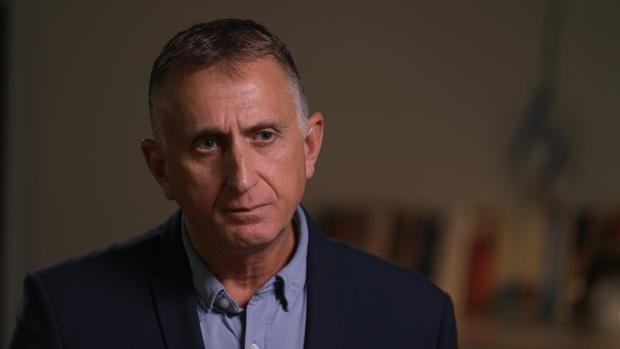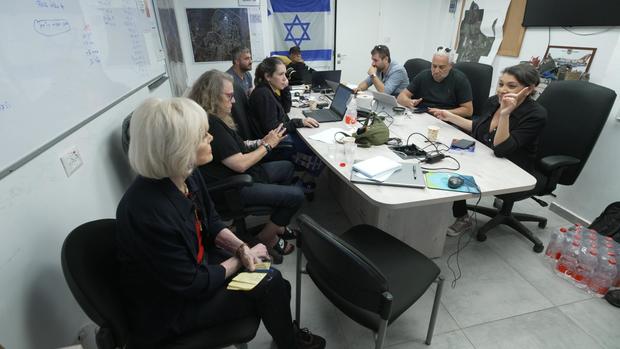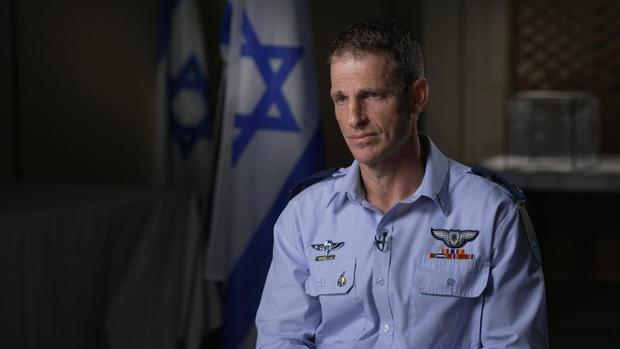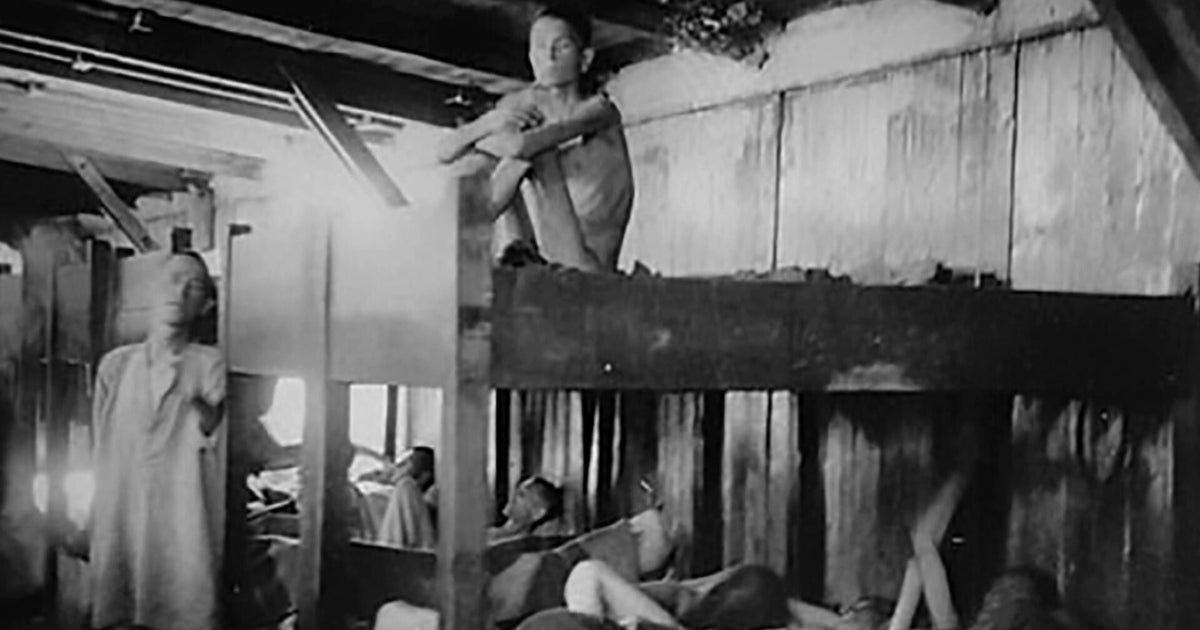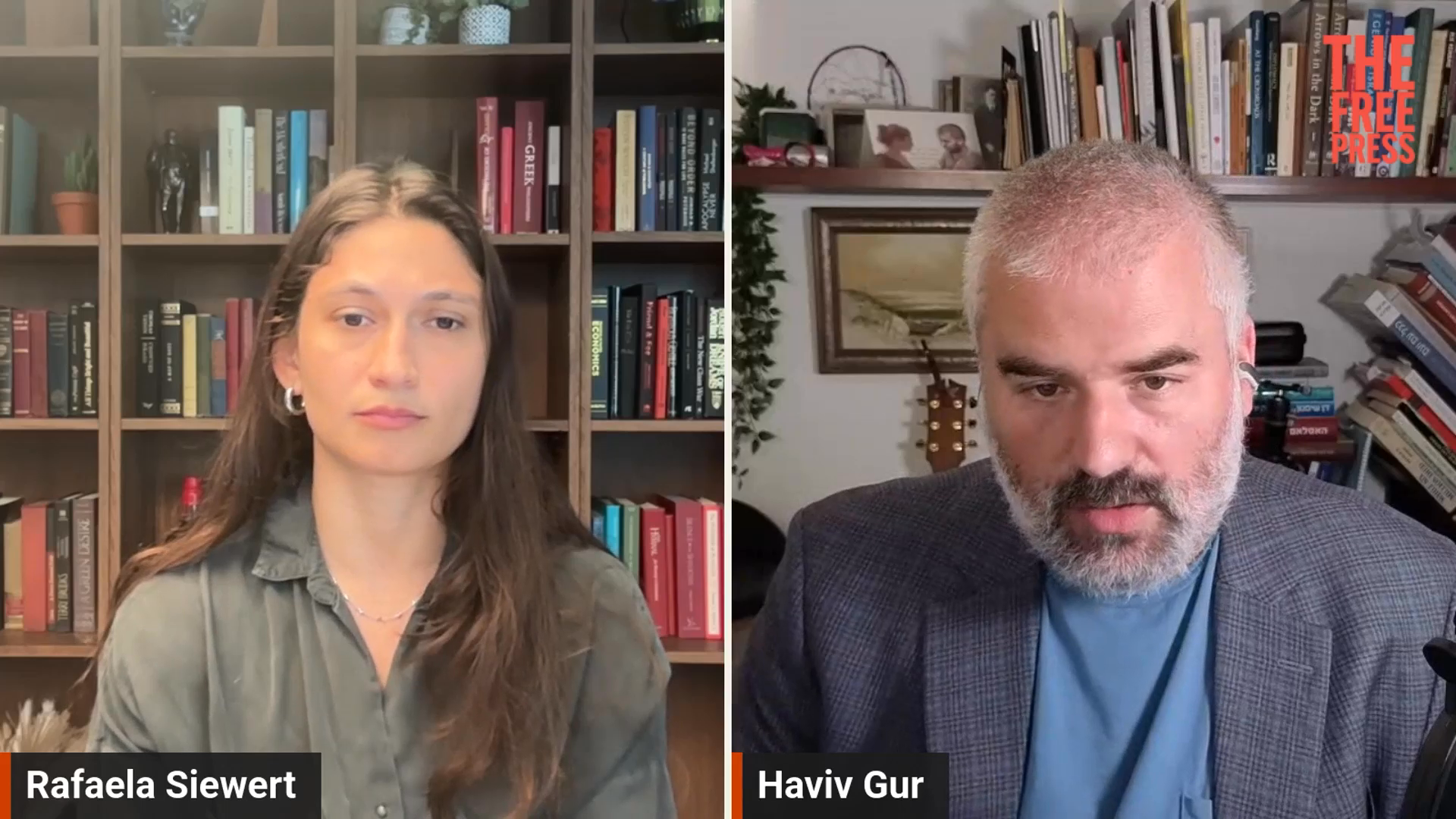Strained U.S.-Israel relationship a "strategic threat," former head of Israeli army intelligence warns
All eyes are on Rafah, the city in southern Gaza where Israel is expected to launch a ground incursion, but Brigadier General Omer Tischler, second in command of the Israeli air force, said Israel is facing a 360-degree war with Iran.
One month ago, on April 13, Iran targeted Israel in retaliation for the assassination of a top Iranian general, attacking despite a warning from President Biden not to. Now Israeli Prime Minister Benjamin Netanyahu appears to be the one ignoring Mr. Biden, saying Thursday that Israel will stand alone if needed after the president said the U.S. would not provide Israel with weapons for a Rafah offensive.
Tamir Hayman, former head of Israeli army intelligence and current head of the Institute for National Security Studies, said he's concerned about Israel's future with the U.S., despite the extensive military collaboration between the countries.
"We have a challenge on maintaining the common values which are the basics of the special connection, relationship with the United States," Hayman said. "We are drifting apart, and it's a strategic threat that we need to address."
Israel's relationship with the U.S. and the war of public opinion
Netanyahu tested that special relationship on Thursday with a public message to President Biden: that the incursion into Rafah would happen with, or without, U.S. weapons.
"If we have to stand alone, we will stand alone," Netanyahu said. "If we need to, we will fight with our fingernails. But we have much more than fingernails."
There's been a week of intense diplomacy, with CIA Director William Burns trying to breathe life into the cease-fire for hostages deal. The war began after Hamas attacked Israel on Oct. 7, killing around 1,200 people and taking about 250 hostage. More than 100 hostages remain in captivity.
Israel's bombardment of Gaza has killed more than 34,000 Palestinians, according to the United Nations, citing numbers from the Hamas-run Gaza Health Ministry. Around 1.3 million Palestinians fled for Rafah in southern Gaza and sought refuge there amid the Israeli bombardment.
Now Israel is threatening to invade Rafah. While the U.S. has historically provided Israel with military aid, the U.S. paused a shipment of 2,000-pound bombs to Israel ahead of the possible Rafah attack. Tischler declined to talk about that specific report.
"What I'll talk about is our strong relationship with the United States," he said. "I know that we will keep on working together with our partners, with our friends, with the United States."
Across the U.S., public opinion among many has shifted against Israel because of the devastation across Gaza. Israel has seemingly lost the war of public opinion, 60 Minutes correspondent Lesley Stahl said to Tischler.
"Maybe you're right," Tischler said. "What we are doing, what we're trying to do — and just to remind us where it all happened … when this all started: It started with a brutal, brutal attack by Hamas."
Israel's fronts to the north: Confronting Iran-backed Hezbeollah
While Israel is engaged with Iran-backed Hamas in Gaza, to its southwest,, another Iran-backed group, Hezbollah, has ramped up its attacks from the north. The group is sending drones and rockets into northern Israel from Lebanon.
The fight is not as intense as the one in Gaza, but it's serious enough that Israel evacuated more than 60,000 people — emptying out the entire northern part of the country. On the other side, 90,000 Lebanese have been forced to flee.
A handful of residents have remained behind in northern Israel, including in the abandoned and partly destroyed town of Metula. Hezbollah video shows near daily missile attacks pummeling the small town. Liat Cohen-Raviv is among the few who stayed behind. She spends her days underground in a bunker complex.
It takes just eight to 20 seconds for a missile fired from Lebanon to reach Metula. Cohen-Raviv showed 60 Minutes the war room where they monitor incoming fire from the hillsides of Lebanon. Alerts went off as a suicide drone reached the region.
Outside the bunker, two Israeli soldiers were wounded as the army tried to respond to the drone. Both later died.
Iran's April 13 attack on Israel
Some 170 suicide drones, like the one over Metulah, were used in Iran's April 13 assault on Israel. The skies across the Middle East lit up that night as Israeli pilots intercepted Iran's salvos. Iran also launched over 30 cruise missiles, which fly low and fast, like jets.
Israel's advanced Arrow system struck at hypersonic ballistic missiles in the outer atmosphere. Of the 120 Iran launched, only a handful actually hit.
"Iran attacked us with all their capabilities and they failed," Tischler said.
The U.S. and Israel consider the battle of April 13 a win, but so does Iran.
"From their eyes it's a strategic victory," Hayman, former head of Israeli army intelligence, said. "They stood against a direct threat by the most powerful nation in the world and defied it."
A surprising coalition of neighboring Arab countries helped Israel defend against Iran's attack, but Israel has largely refrained from naming those partners.
"I'll say that what happened on the night was historic," Tischler said. "But we didn't do it on our own. We've done it with our partners."
Stahl asked Tischler if he was referring to Saudi Arabia and Jordan.
"We're flying with the U.S., with Brits, with the French, and I'll not talk, I don't think it will be wise to talk about other countries," he said.
No one was killed that night, but a girl was injured by falling debris. Several ballistic missiles did evade the coalition defenses. Four hit the Nevatim Air Base, where Israeli F-35s are based. None of the F-35s were damaged, Base Commander Yotam Sigler said.
Iran proved that night that it could send a ballistic missile from Iran and hit Israel, which Iran has never done before.
"What's clear now is that Iran poses [a] threat to the region," Tischler said. "And we should act together against Iran."

